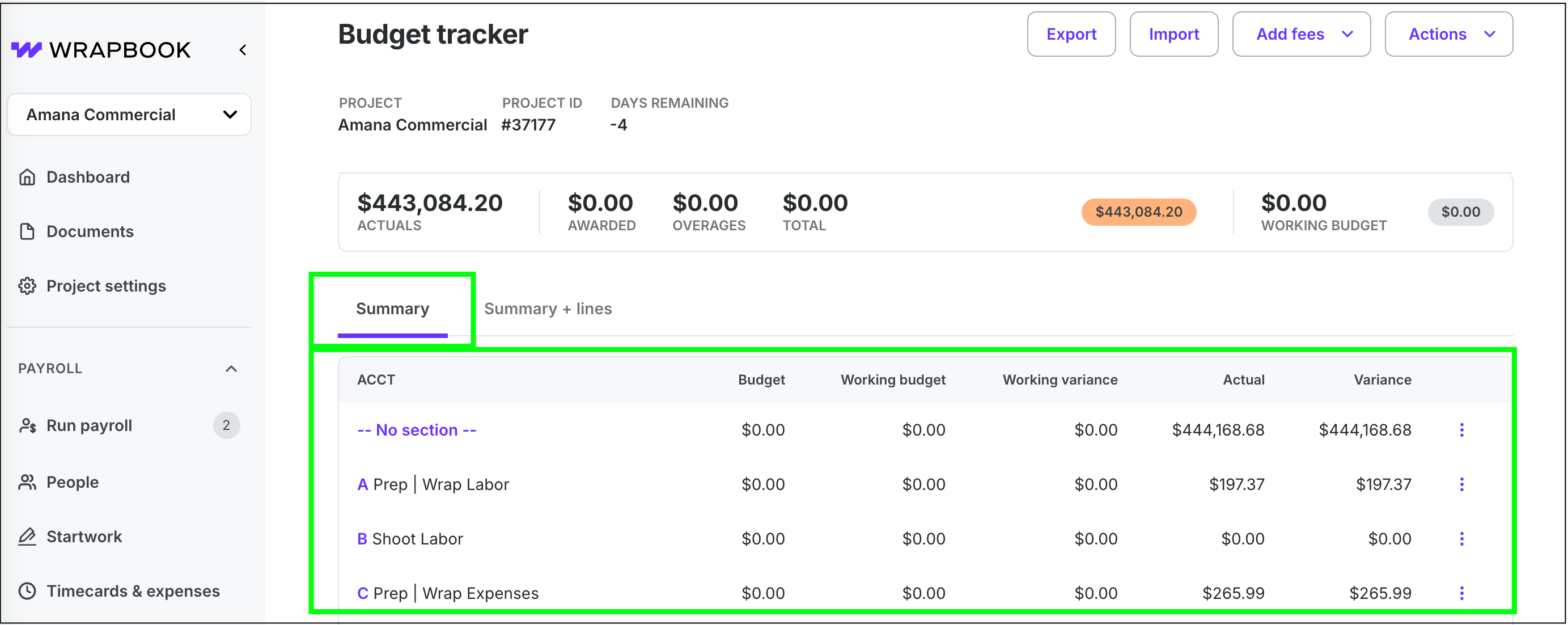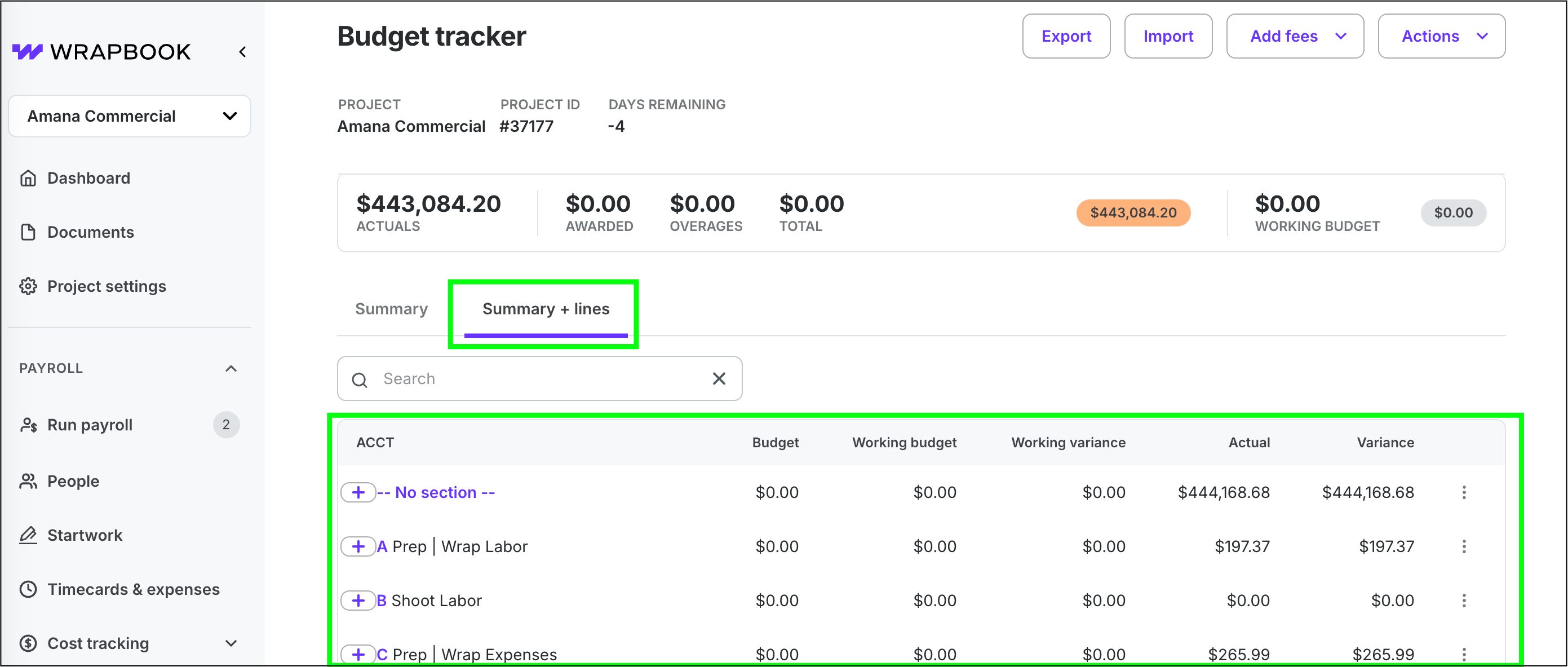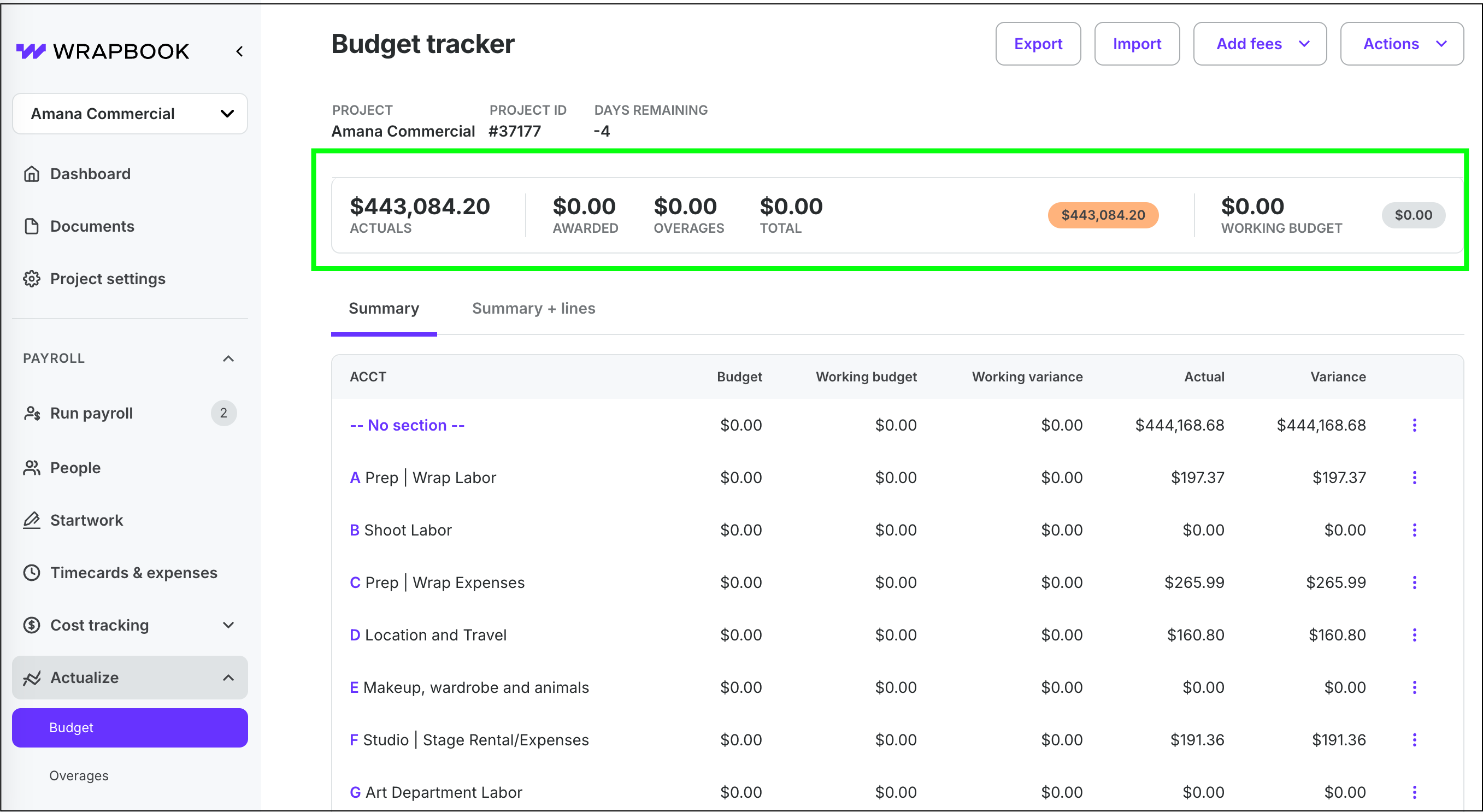This help article is related to Cost tracking
In Wrapbook, production accountants and administrators can manage budgets using either Cost tracking or the Production Accounting Suite.
The Budget tracker compares actual spending against your project’s production budget in real time. It integrates payroll, purchase orders, and petty cash expenses in one unified dashboard, providing instant visibility into project costs.
Access the Budget tracker
The Budget tracker is permission based
To access the Budget tracker in Wrapbook, your account must have one of the following roles enabled:
Role: Company Admin, Company Manager, Project Coordinator, Project Assistant
Custom role with: Accounting & Cost Tracking / Budgets (Cost Tracking) - either Full access, View & Import, View only
To access the Budget tracker:
In the left-side navigation, click the dropdown menu
In the dropdown menu, select the name of the project that you want to see the budget tracking for
In the project dashboard’s Budget overview, click View budget
.png)
Select a project, then click View budget
Budget tracker views
There are two views in the Budget tracker:
Summary view provides a higher-level overview where you navigate through sections
Summary + lines gives you more direct access to individual line items

Summary view

Summary + lines view
Budget tracker totals
Above the Budget tracker table, are project budget totals for:
Actuals: total costs incurred for this project. This includes timecards, expenses, purchase orders and petty cash
Awarded: total budget awarded for this project
Overages: any costs above what was originally budgeted. You can also quickly access a project’s overages by clicking Actualize in the left-side navigation, and then clicking Overages.
Total: total budget awarded plus any overage

Budget tracker totals
Tracking variance
You can track variances by comparing the actual variance (spend vs total budget) and working variance (budget vs working).
If the project is under budget, the variances will appear in green with a (-)
If the project is over budget, it will be in red with a (+)
The Period Variance column shows the difference between current and previous period's Estimated Final Cost (EFC) amounts, calculated as (Current Period EFC) - (Previous Period EFC)Budget tracker actions
Budget tracker options
From the budget tracker you can do the following: